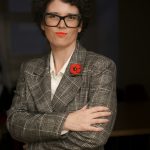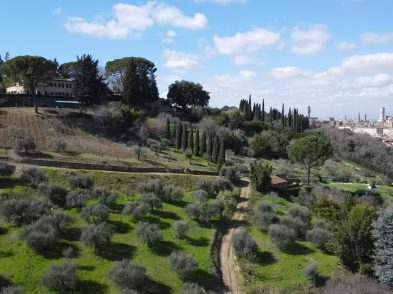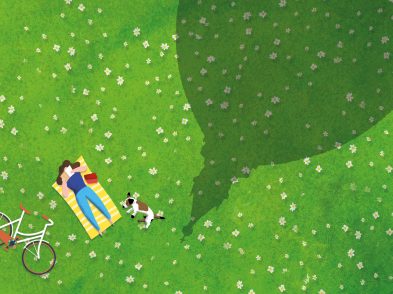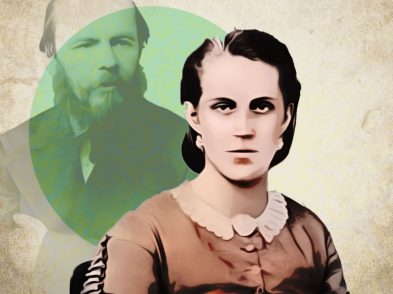“I’ll have herbal tea if there’s some going,” she chuckles, bundling with energy into The Florentine offices for an interview/chat/long overdue catch-up. “It’s been one hell of a morning.” Born in Perth, Australia, Marisa Garreffa’s ongoing projects reflect the eclectic approach she takes to her art and her firm commitment to the Florentine community. Right now, she’s developing a performance art piece and a summer festival, both of which are aimed at healing and entertaining locals. But her arrival in Florence eight years ago was, as Marisa terms it, “an accident”.
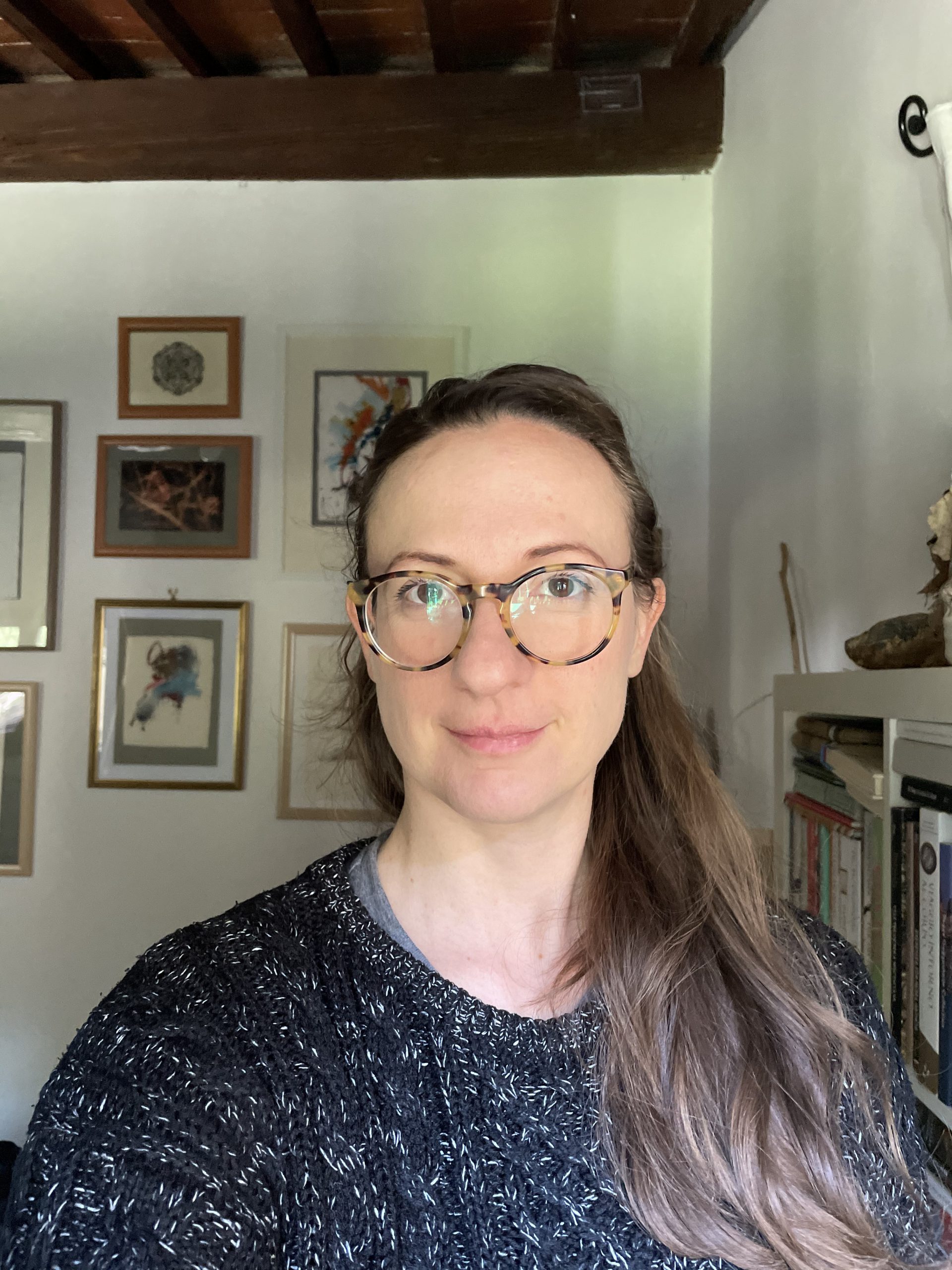
An ultra-bohemian artist cousin she’d never met from the other side of Australia, Adelaide to be precise, dropped her a line on Facebook, inviting her to join him in Florence for the summer. “I was working with theatre companies, doing arts residencies, and a month in Florence sounded cool.” Intrepid Marisa booked her flight, only to land bag-less (“I’d put my whole life in those two suitcases because I’d moved from Australia”) and cousin-free at Peretola. “My arrival in Florence was rubbish… I called and asked him where he was. His reply: ‘You know what? I’ve changed my mind. I’m just not feeling Florence this summer. I’m on the train to Rome, but you’ll be fine. Go to Santo Spirito. Have a great time!’”
Marisa checked into an “antique little hotel, with a lot of really old people”. After falling prey to the classic restaurant scam of the wine costing more than the pasta, she returned to her accommodation to find a happy hour in full flow in the gorgeous Art Deco lobby bar. “I sit down and everybody’s staring at me, but I’m the only person under 80, so it makes sense. About half an hour later, a door opens, and everybody disappears into another room. I’m left there alone with my wine and the bartender starts pissing himself laughing. He said he didn’t think I was here for the reunion!
Slowly but surely, “this weird Aussie girl with bleach blonde hair” (her own definition) started to work out life in Florence as a month stretched into an indeterminate future. “I think I just I was so proud of myself. I went to Trattoria Mario for lunch every day for six days in a row, by myself. They all took a shining to me, so in the end one of them had a nephew who had a room for rent down the road.” Her first encounter with the city’s international side was through the “extraordinary Mexican community”, which enabled her to get a job selling leather jackets at the San Lorenzo market that first summer. “Multicultural Florence was my first Florence.”

The Traces Project, a collaboration with photographer Sarah Hickson at the Au Brana arts residency, France
That first year in Florence proved far from settling, however. In May 2013, during an apartment viewing, Marisa was raped “after agreeing to a drink with a man who accused me of being rude for trying to rush away to my next appointment”. Marisa has since used materials from the attack, the ensuing court case and her recovery to give a voice to rape, mental illness, mental health and grief in both her art and activities as an educator. Her extraordinary output born out of trauma includes the Roundtable Sessions, providing strategies for international travellers to thrive overseas; Unlocking Stories from the Body exercises centered on listening to what one’s body has to say; and the founding of Placehold Open Mic Night. As an artist, she has presented her memory-seeking works at the Asian Art Biennale in Bangladesh and in Hong Kong, as well as at Venice International Arts Week, Milan’s Dancehaus and, slightly closer to home, at NYU Florence.
Now, in May 2021, the artist is continuing her survival with a seven-hour-a-day, week-long, live-streamed performance at The British Institute’s Palazzo Lanfredini, beginning May 17. Yes, To Remember, To Listen is a curative piece for Marisa, but it’s equally a collective act of healing for the community as we are asked to send in our own stories, which Marisa will stitch together, one page at a time, crafting a chartaceous river alongside the Arno. “I work with ritual that explores healing, reconnection and transformation after trauma or crisis. It started because of a personal crisis and now I’m exploring continuously how to expand that on a community scale. I’m really excited to reach this point because that’s a huge part of healing. The moment when your own story collapses and becomes a door to the experiences of other people is a very beautiful moment in the recovery process.” As the Western Australian sews and listens, our voice recordings will form the soundtrack. The project won’t end on May 23 as the plan is to turn the stories into a living library at The British Institute. “Every year we want to invite a new artist to create a work that gathers another wave of stories for the living library.”
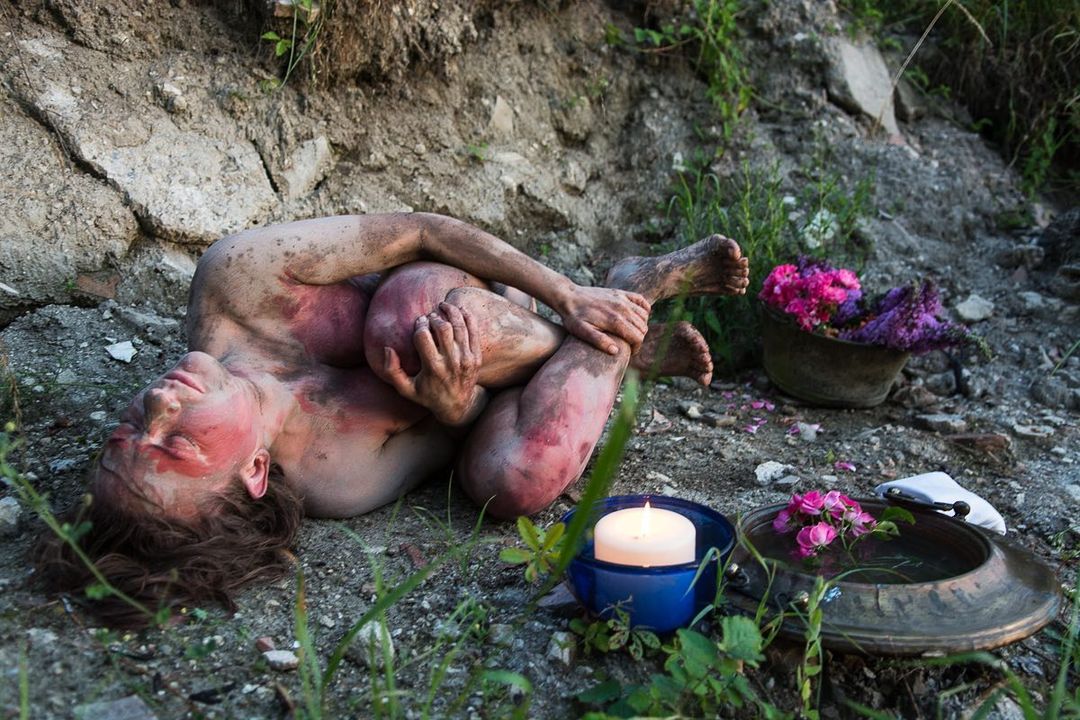
Marisa during The Traces Project, a collaboration with photographer Sarah Hickson at the Au Brana arts residency, France
The performance in the Sala Lungarno is part of an ongoing collaboration, a vibrant new contemporary arts space, which the British Institute was about to launch when the pandemic hit. How does Marisa feel that the international community has reacted to the Covid-19 emergency? “With our planning for SOTTO, it became clear that we care about creating a space for the long-term residents of Florence. We really care about the liveability and not the visitability of Florence. When the city emptied, we all saw who was standing by our side. We saw an international community that fights for Florence, who is out there volunteering, raising money, starting projects and coming up with novel concepts to promote artisans. We see that more starkly now because there’s less noise.”
Indeed, there’s much to look forward in the months to come as SOTTO launches in September. It’s clear that Marisa is relishing the content production. “I’m in the very early stages of an idea called From the Periphery, using SOTTO as a hub to create a network of movement, culture and arts, in and out of Florence. Phenomenal artists have shifted out of the Oltrarno, into the suburbs. They’re doing incredible things, so let’s bring them in and send things out. Of course, we’ll also be asking people to tell us what they want to do in the space.”
When she’s not generating culture, Marisa supports survivors around the world. “I’m starting a new podcast called Sex After Rape, which explores multiple experiences on the topic of sex and pleasure after rape. There’s a woman who opened the first sex clinic ever in the Philippines, some extraordinary young psychologists who work in sexual health and a former sex worker from Australia. We don’t claim to have all the answers, but we’re going to have some very good conversations.”
Get involved in To Remember, To Listen, a collective healing project
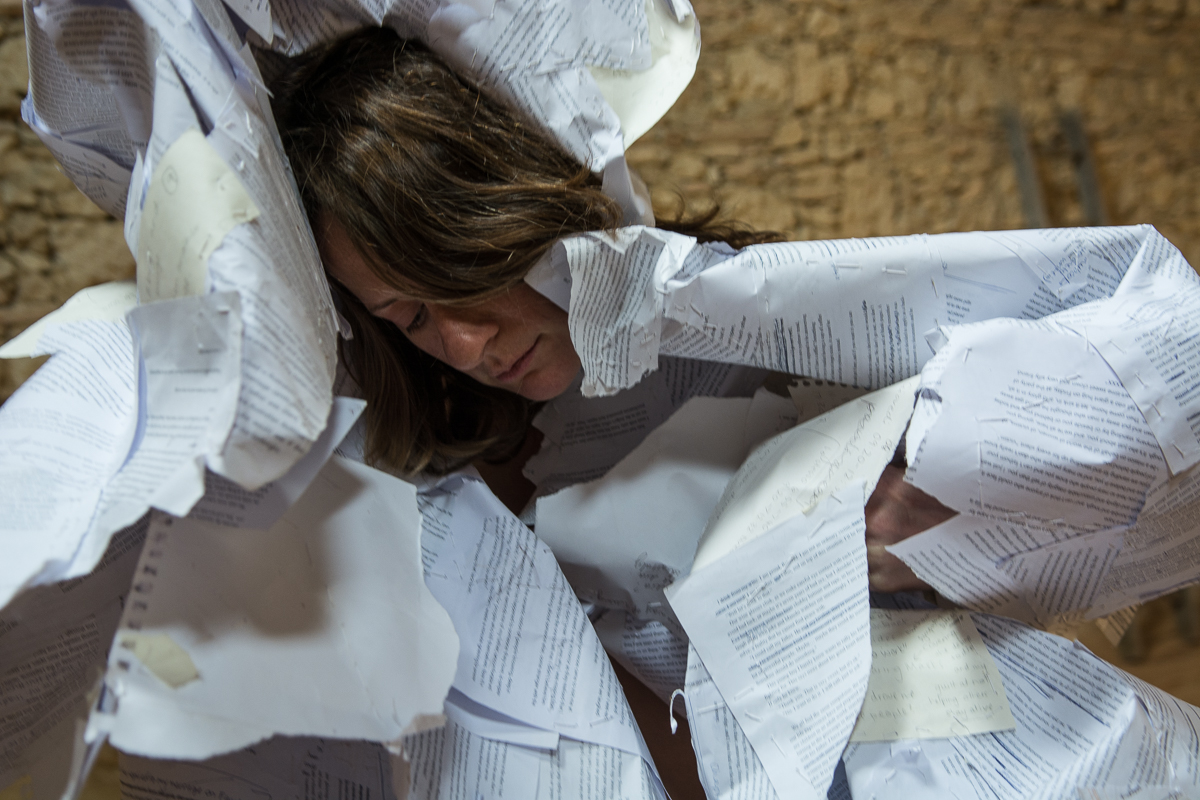
Marisa Garreffa. Ph. Sarah Hickson
Send your stories now—your experiences, thoughts, highs and lows, emotions, incidents and dreams over the past year in Florence. There are no rules or limits; whatever you want to share. Written or spoken in any language, all contributions are welcome.
For more details, see theflr.net/toremembertolisten.

